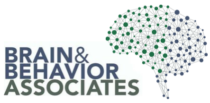Autism is a developmental disability that typically involves delays and impairments in social skills, language and behavior. Autism is a spectrum disorder – that is it affects people differently. Some children with autism are able to communicate verbally, while others may have little or no speech. Some children on the spectrum are able to perform academically with their neuro- typical peers that may have problems the socialization (difficulty reading social cues, struggles to make friends, or may treat people as objects, among other social struggles).
The word autism literally means “aloneness.” For the person on autism spectrum much of life is experienced without reference or understanding of other people’s perspectives and emotions. If left without intervention, many children (and adults) will not develop effective social skills, effective communication skills, or the ability to behave in a way that society finds acceptable.
It’s important for the family of those diagnosed with an autism spectrum disorder to understand that autism is a label for people who have a certain set of symptoms that collectively are called autism spectrum disorder. The label of autism is not an explanation for the cause of autism, and it is likely that multiple factors contribute to the development of the disorder.

There is been a rapid increase in the number of children diagnosed with an autism spectrum disorder. In the 1970s the prevalence of autism was approximately 3 in 10,000. According to the Center for Disease Control (CDC), the estimated prevalence in the United States is 1 in 88 children. Although the reason for the dramatic increase is not well understood, it is almost certainly due to environmental factors and not genetic factors, and it is likely that there are a number of environmental factors interacting to produce the increase that we are seeing in the diagnosis of autism.
At Brain & Behavior Associates, we use a variety of interventions to assist parents and children cope with the symptoms of autism. First, we help to ascertain the child’s strengths and weaknesses both educationally and neurobehaviorally using a number of test and assessment measures. Second, we assess functioning using the latest brain-based assessment tools to include neurotransmitter and stress hormone testing, BrainSpan – an assessment of the ratio of omega fatty acids in the body (omega fatty acids are essential in developing brains), three-dimensional qEEG brain mapping, and an integrative assessment by our highly skilled team of Brain Health professionals. Third, we take all the information that we’ve gathered to develop an individualized and tailored plan of care for the child and supportive strategies for the parents.
If you have a child, friend, or loved one who would like information on our approach to remediating symptoms of autism, please call and schedule a free phone consult with one of our certified Brain Health coaches. We would love to discuss with you ways that we can help.
Call 817-295-8708 for more information.
Written by Wes Center, PhD, LPC-S, NCC, BCPCC, BCN
Clinical Director of Brain & Behavior Associates

